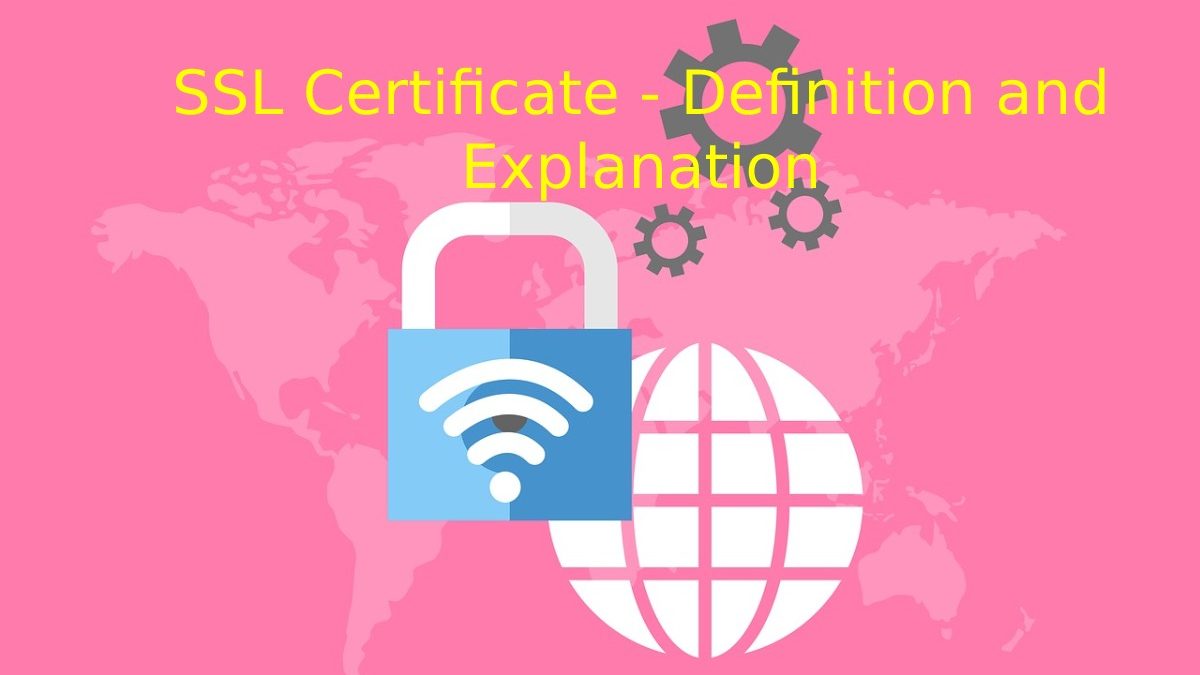Table of Contents
SSL Certificate
SSL Certificate: Have you ever heard of a specific SSL Certificate? Maybe, if you own a website, have you been advised to implement it? Of course, most people, especially non-professionals, have no idea what an SSL certificate is, nor what functions it performs, so they don’t consider it their own, perhaps considering it an extra tool. Mistaken. Very wrong. Because? We will explain it to you immediately.
Start by explaining that SSL stands for “Secure Sockets Layer,” a global standard security technology allowing encrypted communication between a web browser and a web server. The SSL Certificate provides a private “conversation” between the two intended parties. Millions of businesses and individuals use it online to reduce the risk of theft or tampering by hackers and identity thieves (credit card numbers, user names, passwords, e-mails, etc.).
- An SSL Certificate (also known as a “digital certificate”) is put on a webserver to establish this secure connection, and it serves primarily two purposes:
- Authenticate the identity of the website (this guarantees visitors that they are not on a fake website);
- Encrypt the data that is transmitted.
But are all SSL Certificates similar?
No.
There are many different types of SSL Certificates, differentiated according to the number of domain names or subdomains owned, such as:
- Single – protects a single domain name or a single subdomain name;
- Wildcard – covers one domain given name and an unlimited number of its subdomains;
- Multi-Domain – protects multiple domain names.
Another feature that differentiates SSL Certificates is the level of Validation required, such as:
- Domain corroboration – This level is the least luxurious and covers basic encryption and ownership verification of the domain name registration. This type of official document usually takes a few hours to activate.
- Organization validation – besides basic encryption and ownership verification of the domain name registration, some owner details (e.g., name and address) are authenticated. It can take a few hours to a couple of days to obtain this type of certificate.
- Extended Validation ensures the highest degree of security through the thorough examination conducted before issuing the certificate (and as specified in the guidelines established by the government consortium of the SSL certification industry). In addition to the ownership of the domain name registration and the authentication of the requesting entity, the legal, physical and operational existence of the requesting entity is verified. This type of certificate usually takes weeks to activate.
Which sites need the SSL Certificate most?
Defining one type of site rather than another is difficult because everyone should implement it in reality. Suppose we want to establish a scale of necessity. We can say that any individual or organization that uses its website to request, receive, process, collect, store or view confidential or sensitive information MUST have the SSL certificate. Some examples of this information are:
- login and password;
- financial information (e.g., credit card information, bank accounts);
- personal data (for example, names, addresses, dates of birth);
- proprietary information;
- legal documents and contracts;
- customer lists;
- medical records.
Secure Connection with an SSL Certificate
When a browser attempts to access a website protected by an SSL certificate, the browser and the webserver create a secure connection using the SSL Handshake protocol. This process is responsible for specifying the encryption methods and keys used for the rest of the communications. The SSL Handshake protocol is transparent to the end-user and occurs instantly.
Therefore, SSL Handshake uses asymmetric encryption and symmetric encryption. Asymmetric cryptography uses two disconnect keys, one public and one private. The public key is used for encryption or verification of a digital signature. On the other hand, the private key decrypts or creates the digital signature. Symmetric encryption uses the same key for encryption and decryption.
THEREFORE, the SSL Handshake protocol uses the public and private keys of the certificate and a session key generated during the process. Asymmetric cryptography requires more processing capacity, so the public and private keys use only to create a symmetric session key.
If you don’t understand anything, perhaps this step-by-step list of the whole process might enlighten you:
- The browser requests a page protected with HTTPS.
- The web server sends the SSL certificate and its public key.
- The browser verifies that the certificate is legitimate, that a reputable certification body issued it, and that its name is appropriate for the website to which it connects. If the certificate trust, the browser generates a symmetric gathering key and sends it using the server’s public key.
- The symmetric session key decrypts with the private key, and the web server sends an encrypted confirmation with the session key to start the encrypted session.
- The web server and browser encrypt all transmitted data with the session key.
Where can I get an SSL Certificate?
However, The most significant part of an SSL certificate is where it comes from. Certification authorities issue SSL certificates (CAS), organizations trusted to verify the identity and legitimacy of any entity requesting a certificate.
The role of the authority is to accept certificate applications, authenticate applications, issue certificates, and maintain status information on issued certificates.
Therefore, you could purchase digital certificates from a domain registrar or website hosting provider. Or you could turn to us to be on the safe side.
Also Read: What is an Investment – Investing Examples and Five Benefits of Investing


